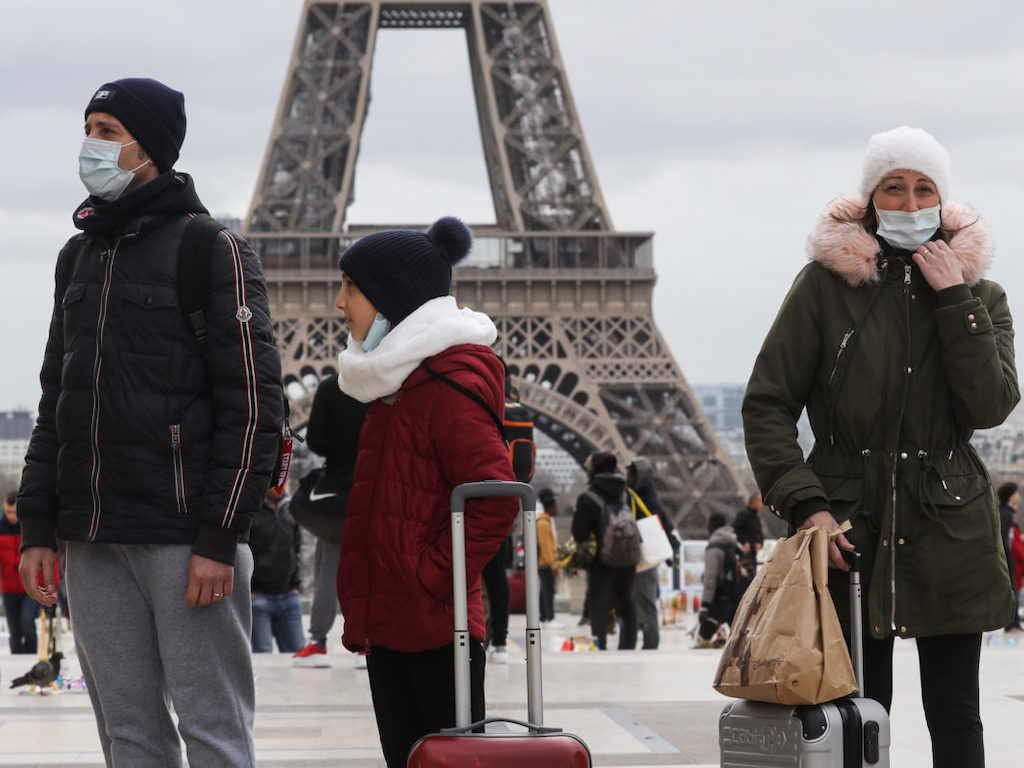3 Mins Read
A new study has revealed that the improvement in air quality in Europe due to the coronavirus lockdown has prevented 11,000 deaths from air pollution in the continent. The study also found fewer cases of asthma and preterm births, and researchers say that these findings shed light on the possibility of a healthier environment for all if countries are willing to shift away from fossil fuel industries in the long-term. Results of the study are also particularly relevant in the immediate term, following a separate paper that found a connection between air pollution exposure and rates of fatality from Covid-19.
In a recently published study by the Centre for Research on Energy and Clean Air (CREA), the sharp decline in road traffic and industrial emissions due to coronavirus curbs have resulted in 11,000 fewer deaths from air pollution. Using statistical models combining data for air quality, weather conditions, carbon emissions, population and prevalence of disease, the researchers also found that there were 1.3 million fewer days of work absence, 6,000 fewer children developing asthma and reduced the number of preterm births by 600.
The overall calculation of 11,000 deaths having been avoided is the most likely estimate out of a series of computational analyses, with some results ranging as high as 20,000.
Compared to data from the same period last year, levels of nitrogen dioxide pollution has fallen by 40% and PM2.5 particulate matter has dropped 10%. These two types of air pollution are mainly generated by fossil fuel industries and are responsible for around 470,000 deaths in Europe each year.
Globally, a recent Greenpeace report estimates that 4.5 million deaths and economic losses of US$2.9 trillion annually is directly attributable to air pollution from the burning of coal, oil and gas.
The authors of the latest study believe that this result of cleaner air due to the coronavirus response sheds light on the potential for a cleaner and healthier environment for all, so long as governments take action on shifting away from polluting fossil fuel industries for the long-term, even after the pandemic has subsided.
While this particular study does not include deaths from Covid-19, the findings remain relevant for public health policy specifically targeted at combating the coronavirus, as a previous study from Harvard University revealed that air pollution exposure was linked to significantly higher death rates in people infected with Covid-19.
The lead author of the CREA study, Lauri Myllyvirta, said that while air quality improvements due to lockdown measures have been significant, only a long-term reduction in fossil fuel consumption can sustain the lower levels of air pollution and the positive impact it will have on public health.
Speaking to the Guardian, Myllyvirta said: “We have a lot of global crises to face. I hope this will make people think: ‘What if we had this sort of air quality not because everyone is forced to sit at home but because we managed the shift to clean transport and energy?’ We have to hope this virus helps us to move forward in fighting climate change and other bigger challenges, rather than taking us back.”
In Asia, much of the reduced air quality due to travel restrictions and reduced industrial activity has already begun to return to pre-coronavirus levels. While scientists saw a drastic drop in air pollution levels in early 2020 over many cities across Asia, levels of pollution are spiking again as countries ease restrictions.
Experts are warning that stimulus packages aimed to rebuild from economic fallout due to coronavirus should help promote the transition to clean energy instead of fossil fuels. The global energy watchdog IEA, for instance, said that renewables have become the only energy source resilient to the pandemic-induced economic shock, and that faster change away from fossil fuels must happen in order to bring carbon emissions down in the long-term.
Read our earlier coverage of Covid-19 here.
Lead image courtesy of Ludovic Marin / AFP via Getty Images.




